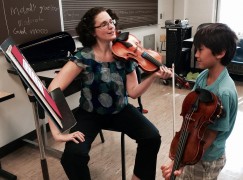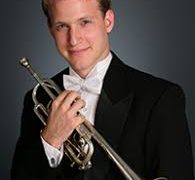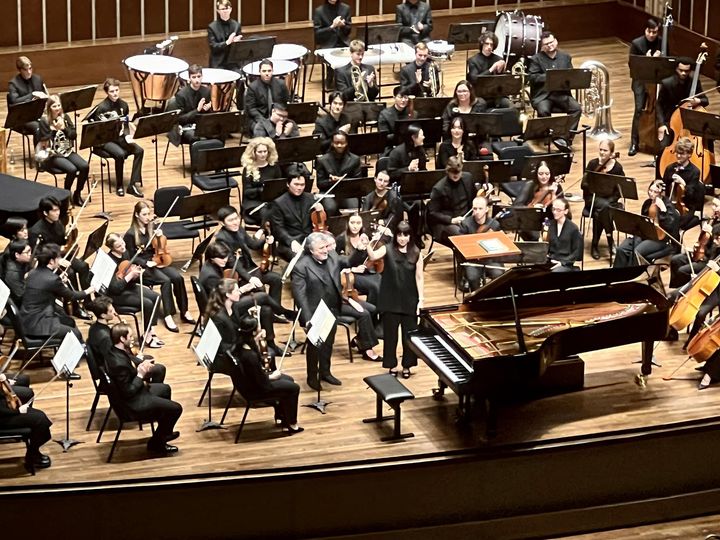Live to teach, teach to live
mainOur diarist Anthea Kreston, violinist of the Artemis Quartet, just can’t get enough of sharing the skills – with anyone from three years up.
What does a career in chamber music entail? Besides an intense and personal rehearsal schedule, it involves intricate, interwoven travel plans, publicity, and teaching. Top chamber ensembles (such as the Emerson Quartet) have busy and regular teaching careers, and to have a solid, contracted teaching position is a coveted opportunity.
As a quartet, we teach at the University of the Arts in Berlin (where we each take responsibility for 8 groups, and share responsibility for an additional 8 “Master Groups”, which often travel from abroad for short periods of intense work with the quartet). In Brussels, we are the resident chamber music teachers at Chapelle Musicale Reine Elizabeth. It is here that I spent the better part of this week, while members of the quartet were off recording CD’s for upcoming projects.
Chapelle holds a unique position in the world as an exclusive training ground for today’s top soloists and chamber ensembles. There are 6 master teachers – Artemis for chamber, Gary Hoffman cello, Louis Lortie piano, Augustin Dumay violin, José van Dam voice, and Miguel da Silva viola. 66 students from 20 countries live and work at the Chapelle – a series of buildings surrounded by woods, 30 minutes outside of Brussels. 270 concerts (guests and resident artists) are presented annually, and I was able to attend a concert of the fabulous Ebene Quartet this week.
Students at Chapelle are the elite of tomorrow – and many already have international performing careers, recording contracts, and management. One of our quartets, the very young French quartet Arod, just swept the ARD in Munich – arguably the world’s most coveted chamber music prize.
I am picked up by the driver at the airport – luggage carried and doors opened – and dropped at my 4 star hotel. Later in the day I arrive at Chapelle, greeted by the artistic staff and executive director. Our coaching sessions are in state-of-the-art concert spaces, and last for 4 hours per group, all in one chunk – a challenge for all of us for concentration and musical commitment.
This time, I had the opportunity to work with the Busch Trio – 8 hours on the Beethoven Triple, which they are preparing for concerts beginning in one month (including Warsaw Symphony with American conductor Karina Canellakis). This young trio, made up of Israeli brothers on piano and cello, and a Dutch violinist, plays with passion, intelligence, and sweep. The luxury of 8 hours on one work allows us to dig deep – not only about the music, but also about inter-personal relationships, career advice, and even touring stories (we enjoyed reciting the “5th Concert Group Sworn Statement” together at the large communal students’ table over dinner).
Another two trios were there this time as well – the French/American Trio Zadig (recently returned from successes at the Fischoff Competition) and a new group – Trio Sora – a young Latvian/French trio just getting their feet wet on the festival circuit. Zadig and I had worked together before – their raw energy and passion are easy to get swept away by – and our hours together slipped away before we knew it. Ian Barber, the American pianist of Zadig, sent me his thoughts today.
“We heard about Chapelle from our friends in the Arod Quartet 4 days before the audition. We were all very nervous and had planned to be there early but went to the wrong train station and ended up arriving right before our audition time! Anyway, we felt a bit shaky for the audition but very happily we were accepted. It has definitely been one of the best things that has happened for our trio. The level at the Chapel is so high and we were very motivated to improve and play our best for the lessons for the Artemis. Our first lesson with Anthea was exactly the type of coaching we were needing. We were preparing for the Fischoff competition and she was tough! She really gave us the motivation and inspiration to work hard and do our best for the competition.”
I had a fun time pulling my original parts from my library before flying to Brussels – 3 Haydn trios, the often overlooked Chausson, Schumann, Beethoven triple and Archduke, Piazzolla and a new work I did not know. I was able to share my experience and bowings/fingerings from Ida Kavafian and Isaac Stern, who I adore (their markings are often more dangerous and extremely creative). One accidental strength of the Artemis Quartet is that both violinists were members of successful piano trios – enabling us to slip easily between teaching trios and quartets. Because I will be returning in several weeks, I was able to give specific assignments (score study and recommended reading and listening) to the groups, and several will be sending videos of their progress for review in the gap between visits.
But – I must say, that my favorite teaching here thus far has been starting two friends of my daughters – one age 3 and one age 5. To be able to join in the pure joy and spontaneity of discovery, aided by my extensive sticker collection, never fails to connect me with my first and deepest memories.






How wonderful that you are teaching, as well as playing. And that you love it so much. I am sure it benefits you just as much, though differently, as it does the players you coach. I have sat in on master classses with ensembles as well as individuals and one learns just an enormous amount seeing how the expert player approaches the music. Are you ever going to come to Australia? Would love to hear Artemis and meet you!